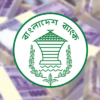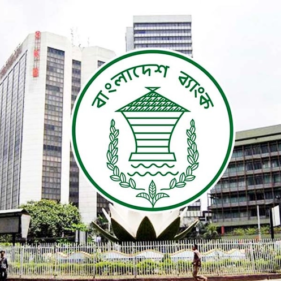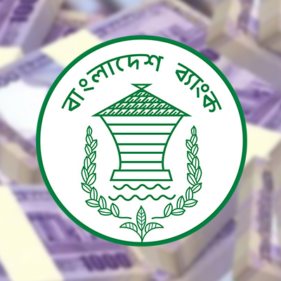A majority of banks in Bangladesh are coping with difficulties in working their day-to-day banking actions owing to tightening liquidity introduced on by the dragging worldwide foreign exchange catastrophe, slower deposit improvement, and lackluster mortgage restoration.
This has pressured lenders to indicate to the choice money market, a short-term money market that allows big financial institutions to borrow and lend, to secure funds to have the ability to meet their value obligations.
On Thursday, the transaction on the in a single day interbank title money market stood at Tk 9,449 crore, the perfect since August 11 last 12 months when it amounted to Tk 9,706 crore.
Numerous components paying homage to slower deposit improvement, a weak tempo of mortgage restoration and the acquisition of {{dollars}} by banks from the Bangladesh Monetary establishment to clear import funds have been launched in regards to the current state of affairs.
Deposit improvement decelerated to eight.40 % throughout the last fiscal 12 months of 2022-23 from 8.90 % within the earlier 12 months.
Categorized loans, which erode a financial institution’s lending functionality, have moreover soared.
Non-performing loans (NPLs) totaled Tk 131,620 crore in March, marking a 16.02 % enhancement year-on-year, BB data confirmed. The quantity was 8.80 % of the entire credit score disbursed throughout the banking sector.
Bankers say a portion of letters of credit score rating has already change into pressured loans owing to debtors’ failure to pay once more on time.
Towards the backdrop, the choice money price, the speed of curiosity on a single-day mortgage – surged to as extreme as 7.75 % on Thursday.
Banks Search Liquidity Support Amidst Coverage Price Hike: Central Financial institution
In step with bankers, the choice money market has been witnessing large pressure given that heart of 2022. So, a rising number of banks, along with Shariah-based lenders, are taking liquidity assist from the central monetary establishment whatever the hike within the protection price.
Seven banks took Tk 4,925 crore beneath the seven-day repurchase settlement (repo) and the one-day liquidity assist facility of the BB on August 6 of those 12 months. A day later, eight banks borrowed Tk 3,339 crore.
4 banks took Tk 3,402 crore on August 8 and 6 banks borrowed Tk 3,485 crore on August 9.
In July, the BB elevated the repo price by 50 basis elements to 6.50 %.
A senior official of the central monetary establishment talked about the volatility throughout the worldwide alternate market may be the principal trigger for the tight liquidity state of affairs throughout the banking sector.
Bigger import funds in the direction of common export and remittance earnings have precipitated the slide throughout the worldwide foreign exchange reserves in Bangladesh, sending the US dollar price to a file extreme amid the shortage of the American buck.
The BB supplied $13.50 billion from its reserves amongst banks as a substitute for the taka, deepening the liquidity crunch.
In June, the surplus liquidity throughout the banking sector stood at Tk 1,66,200 crore, down from Tk 2,03,435 crore 12 months prior to now, BB data confirmed.
Of the surplus liquidity, Tk 63,600 crore had been with state-run banks, Tk 68,300 crore had been held by personal enterprise banks, and the remaining Tk 34,300 crore belonged to worldwide banks.
A lion’s share of the surplus liquidity has been invested in treasury bonds and funds.
The liquidity state of affairs varies from monetary establishment to monetary establishment, with some sitting on additional funds whereas others are coping with liquidity shortages.
Not lower than a dozen banks, along with six Shariah-based banks, are literally coping with an excessive liquidity catastrophe. They often have didn’t handle the minimal cash with the central monetary establishment, the central monetary establishment talked about in a report.
In Bangladesh, shariah-compliant banks are considerably bearing the brunt of the liquidity catastrophe after mortgage irregularities made headlines as a result of it prompted some debtors to withdraw funds, enterprise insiders talked about.
Pubali Monetary Establishment Managing Director Mohammad Ali blamed the slower deposit improvement amid the persisting worth of dwelling catastrophe and the widening public sector credit score rating for the current liquidity crunch.
“Small and medium-scale deposits have been withdrawn in present months as savers proceed to wrestle to fulfill their dwelling payments.”
Frequent inflation stood at 9.69 % in July, barely a lower from the 11-year extreme of 9.94 % in May.
Pubali Monetary Establishment faces no liquidity shortage. Reasonably, its deposits elevated by Tk 6,000 crore throughout the last six months, in accordance with Ali.
The CEO elements out that public sector borrowing elevated to an enormous extent last 12 months, worsening the liquidity state of affairs at banks.
Jamuna Monetary Establishment Managing Director Mirza Elias Uddin Ahmed says although an incredible number of banks are in a liquidity catastrophe, the liquidity state of affairs of the final banking sector is simply not that unhealthy.
He, nonetheless, acknowledges that mortgage restoration is simply not in effective situation the least bit because of debtors are often not fascinated about paying once more using the current monetary slowdown as an excuse.
“This has tightened the liquidity state of affairs.”
Dhaka Monetary Establishment Managing Director Emranul Huq says the liquidity state of affairs is continually enhancing aside from some shariah-based banks given that personal sector credit score demand is however to decide on up and import funds have slowed in present months.
He, nonetheless, warned that the liquidity state of affairs would transform tighter as quickly as credit score rating demand rebounds.
Personal sector credit score rating improvement stood at 10.57 % in FY23, strategy down from 13.66 % 12 months prior.”Banks have slowed down lending due to the current monetary uncertainty,” Huq added.









